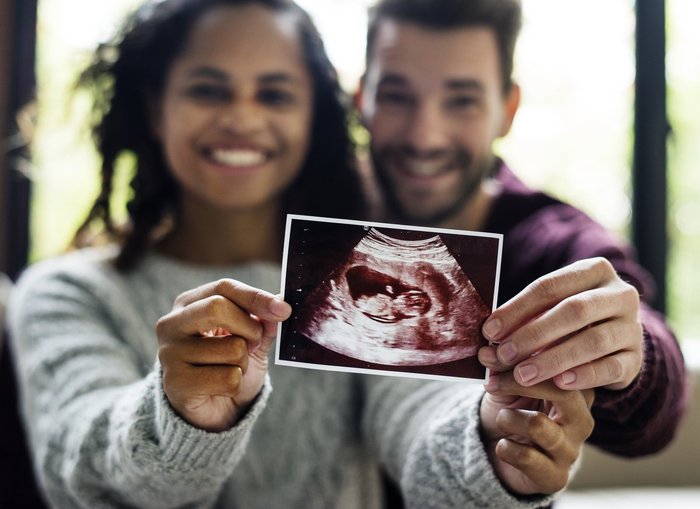The following information is aimed at women with a kidney transplant who are considering a pregnancy, as well as their partners.
If you have a kidney transplant it is important to think carefully before becoming pregnant. This is to make sure that you plan your pregnancy for the right time, to have the best outcomes for you and your baby.
Most women with a kidney transplant have healthy pregnancies but sometimes pregnancy can affect your health and occasionally your kidney transplant function, which may also affect your baby.
Why is it important to plan a pregnancy after transplant?
It is important that you talk to your kidney doctor and transplant teams if you are thinking about having a baby. Planning a pregnancy carefully helps you to get pregnant at the right time and to check that you are not taking any medications that may harm your baby.
As with any expecting mother, taking folic acid reduces the risk of spina bifida and this is best started before the baby is conceived.
Who will give me advice?
If you are planning a pregnancy, your kidney doctor will advise you on the best approach and will probably refer you to ‘pre-pregnancy counselling’ with a kidney specialist and an obstetrician (pregnancy specialist). At this appointment there will be the chance to discuss what might happen in a pregnancy you and your baby, what the best treatments are and what monitoring you will need, both during and after your pregnancy.
When is the best time to get pregnant after a transplant?
This will depend on your individual circumstances and the wishes of you and your partner. It is recommended that you delay pregnancy until at least one year after your kidney transplant or following a transplant rejection.
Ideally you should wait to get pregnant until your kidney function is stable, your blood pressure is well-controlled and your medicines have been changed to pregnancy safe preparations.

Is pregnancy risky after a transplant?
There are very few women these days who are advised not to get pregnant. Even then it is always up to you (and your partner) whether to take the risk. It is much better to know about the possible problems and discuss these in advance before you get pregnant.
Do I need to use contraception?
Your fertility can improve rapidly following a kidney transplant. It is therefore important to use contraception to avoid getting pregnant in the first year after transplant.
There are lots of types of contraception that you can use. Discuss this in detail with your GP, kidney doctor or transplant team. Condoms, the progesterone only-pill (mini pill), a progesterone implant and the progesterone intrauterine system (Mirena coil) are all safe and effective for women with kidney disease and transplants.
How will pregnancy affect me?
Women who have a kidney transplant are more likely to have complications during pregnancy than those without kidney disease. Your individual risk will be discussed during pre-pregnancy counselling.
The chance of developing complications during pregnancy depends on:
- Your kidney function
- Your blood pressure
- The amount of protein in your urine
- The underlying cause of your kidney disease
- Any other medical problems that you or your partner may have.
What could go wrong during my pregnancy?
Although many women will be well during their pregnancy, you are at increased risk of the following:
- Developing high blood pressure or pre-eclampsia. This is a serious illness that usually happens in the second half of pregnancy. It causes high blood pressure and protein in the urine. The symptoms of pre-eclampsia may include headaches, blurred vision or swelling of the hands, feet or face. Your antenatal (before birth) clinic will measure your blood pressure and test your urine for protein. This helps pick up pre-eclampsia early.
- Worsening of kidney function. In general, the better your kidney function at the start of the pregnancy, the less likely it is to get worse later.
How will my transplant affect my baby?
There are two main problems that having had a kidney transplant can affect your baby:
- Your baby’s growth may be affected so they are smaller when born than they would be if you did not have kidney disease and a transplant. Occasionally extra support for the baby is required to minimize the risk of long-term health problems and in extreme cases the baby may not survive.
- Your baby is more likely to be born before their due date. A baby born before 37 weeks is called premature and is at increased risk of medical problems after birth. The seriousness of these problems will depend on how early the baby is born and how small they are.
If your baby does not grow properly in the womb or is born before their due date, they may need to spend time in a neonatal unit. This is a dedicated intensive care unit which specialises in treating newborn babies.
Will my post-transplant medication harm my baby?
There are some blood pressure and post-transplant medicines which have to be stopped before you get pregnant because they could harm your baby. This is one of the reasons why it is important to speak with your doctor before you try to get pregnant. Do not stop your medication without taking medical advice.
Mycophenolate/Myfortic drugs are not advised for women trying for a pregnancy because of risk of foetal malformation. Your transplant team will make necessary adjustments in medicines before conception.
If your doctors change any of your medicines, you should wait for three months before trying to get pregnant to make sure that your kidney function is stable.
Are any extra medicines needed during pregnancy?
All women should take folic acid for at least three months before trying to get pregnant and for the first 12 weeks of pregnancy. This helps to reduce the risk of your baby developing spina bifida (a problem with the spinal cord). You may be advised to take a higher dose of folic acid than woman without a kidney transplant.
Vitamin D is generally recommended for all pregnant women, to help strengthen your baby’s bones. You do not need any other supplements unless advised by your doctor.
Women with kidney disease are at higher risk of pre-eclampsia. Aspirin lowers this risk so ask your doctor if they would recommend this for you.
Pregnant women who have a high level of protein in their urine have an increased risk of developing blood clots (thrombosis). This risk can be reduced by small daily injections of a blood thinning medication, which makes your blood less likely to clot.
Pregnancy can cause a low blood count (anaemia) and the risk is higher in pregnant woman with a kidney transplant. You may need to take iron tablets or have iron injections, and sometimes weekly or monthly injections of the hormone erythropoietin (EPO). EPO can increase your blood pressure so this will need to be monitored carefully by your doctor. Blood transfusions are usually avoided in pregnancy.
Pregnancy alters your body’s control of sugar (glucose). This may be worse if you are being treated with steroids (e.g. prednisolone), tacrolimus or ciclosporin, are from an Asian or African background, or are overweight. You may develop a condition called gestational diabetes (diabetes caused by pregnancy) and need treatment with insulin. You will be monitored for gestational diabetes throughout your pregnancy.
What should I do when I become pregnant?
You should contact your GP, who will refer you to appropriate maternity services. You should also tell your kidney doctor or transplant team.

What care will I receive when I become pregnant?
Both you and your baby will be closely monitored during your pregnancy by an obstetrician and kidney/transplant team. Like all pregnant women, you are likely to see a midwife at your first antenatal hospital appointment, where your personal details and medical history will be recorded.
Your subsequent care is likely to be with a specialist team of obstetricians and midwives with experience in looking after women with medical problems.
You will be offered the same ultrasound scans and blood tests as other pregnant women. If there are concerns about how your baby is developing, or about your blood pressure, you may be offered extra scans to look at your baby’s growth.
You will need extra monitoring during pregnancy, including regular tests to monitor your kidney function, tacrolimus/ciclosporin levels, and the protein levels in your urine, as well as monitoring your blood pressure.
Will I have to have my baby in a special unit?
Most women with a kidney transplant will be able to have a normal delivery. However, if complications occur with you or the baby, you may need to have an early delivery or caesarean section.
Home births are not recommended as you are more likely to need specialist, hospital-based care.
Your baby’s growth will be monitored using ultrasound scan throughout your pregnancy. If you are healthy and your baby is growing well, you can expect to deliver normally around your due date. If the baby stops growing as much as your doctor would like, they will talk to you about the next best steps. This may include delivering the baby early.
Is breastfeeding safe?
Breastfeeding is usually safe, but it is important to check with your doctor as some medicines pass into breast milk and may harm your baby.
Pregnancy and kidney transplant: download or order Kidney Care UK's information leaflet
You can download our Pregnancy and chronic kidney disease leaflet for free.
You can also order a printed copy of Kidney Care UK’s Pregnancy and chronic kidney disease leaflet to be sent to you in the post.